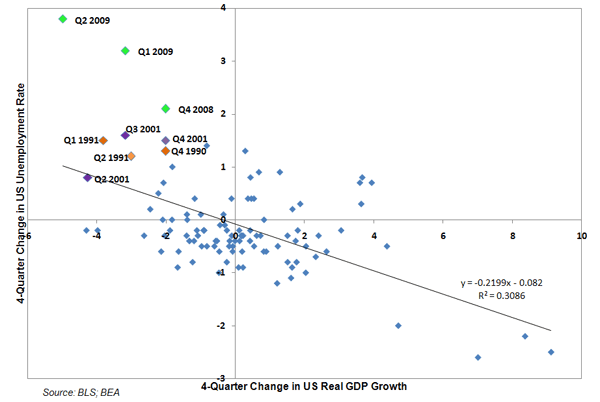Contents
Our colleague Tara reports that the judge stipulated that UnitedHealth must divest Change’s claims editing subsidiary, ClaimsXten, to TPG Capital. Comcast is on track to divest its one-third stake in the latter, which is controlled by Disney, in 2024. The Federal Trade Commission last year ordered 7-Eleven to divest hundreds of locations, including some in California, after its $21-billion acquisition of Speedway, a rival convenience store operator.
A carve-out entity is an entity or subsidiary that is being divested. The U.S. Securities and Exchange Commission requires that the statements represent the divested company and also show the cost of conducting the business. For example, CSX Corporation, a real estate and rail transportation company, made divestitures to focus on its core railroad business and also to obtain funds to settle its existing debt. In times of financial difficulty and to keep the business afloat, businesses sell off their non-core assets. Instead of investing their money in a subsidiary or unit that is performing poorly, businesses will sell the assets and save money to prevent insolvency.
Business EntityA business entity is one that conducts business in accordance with the laws of the country. It can be a private company, a public company, a limited or unlimited partnership, a statutory corporation, a holding company, a subsidiary company, and so on. Companies evaluate the performance of all the divisions and divest those divisions whose internal rate of return is below the average or required rate of return. Divesting enables businesses to focus on their core operations. The firm once again focuses on the niche where it holds expertise. StakeholdersA stakeholder in business refers to anyone, including a person, group, organization, government, or any other entity with a direct or indirect interest in its operations, actions, and outcomes.
They only restructure companies by selling a part of the assets, investment, subsidiary, or division. One major current instance is the impact of the pandemic, remote work, and the rise of technology use and their impact on offices, commercial real estate. Divestment involves a company selling off a portion of its assets, often to improve company value and obtain higher efficiency. Many companies will use divestment to sell off peripheral assets that enable their management teams to regain sharper focus on the core business. While divesting may refer to the sale of any asset, it is most commonly used in the context of selling a non-core business unit. Divesting can be seen as the direct opposite of an acquisition.
In this case, a parent company sells assets, such as real estate or equipment to another party. The sale of assets typically involves cash and may trigger tax consequences for a parent company if assets are sold at a gain. This type of divestiture that occurs under duress may result in a fire sale with assets sold for below book value. In the same way, a firm may choose a divestiture strategy to allocate its resources for optimal use, removing business units that do not generate the required rate of return.
Reasons for Divestment
SubsidiariesA subsidiary company is controlled by another company, better known as a parent or holding company. The control is exerted through ownership of more than 50% of the voting stock of the subsidiary. Subsidiaries are either set up or acquired by the controlling company. The availability of better opportunities compared with the existing business lines also motivates management to divest current business endeavors and set up a new one. Divestiture backfires at times resulting in the decline of business sales, market value, and acceptability. Environmental, social, and governance criteria are a set of standards socially conscious investors use to screen investments.
Of course, there are times when divesting is a last resort option for more funds. While this can feel like a negative decision, it can ultimately have a positive result. Companies will often divest from regions that are experiencing war-related or socio-political tensions. When companies divest from such regions, there is an outflow of cash from the war-torn countries.

Before taking such a huge step, other possible alternatives should be reviewed first. Another crucial part is selecting the path, i.e., the type of divesting to go for. It is essential to follow a systematic and structured process. A fair valuation must be executed, ascertaining the assets’ acceptability among buyers. Patience is another crucial requirement for divestiture; it may take a year or more to crack the deal. Business entities resort to divestiture when a specific unit is causing losses.
Disinvestment
Some observers see such post-merger divestment as inherently destructive, and apply the pejorative label asset-stripping to it. In other cases the director general might need to think about the detailed terms of divestment. At this juncture both are divested of their individual rights; human relationships are turned into material relations. https://1investing.in/ Over 40 per cent of former state owned enterprises have been divested, 50 per cent of which were sold. Ironically these enterprises appear to have been relatively less indebted as compared to the enterprises which were divested subsequently. Firms use transitional service agreements to increase the strategic benefits of divestitures.
- Under the equity carve-out scenario, a parent company sells a certain percentage of the equity in its subsidiary to the public through a stock market offering.
- In this way, divestment serves as a means of leveraging economic power to help bring about political, economic, legal, or social change.
- Spin-offA spinoff, also known as starburst or spinout, refers to an operational strategy where a company separates its subsidiary to form a new independent entity.
- In the 1970s and 1980s, businesses and governments worldwide protested the apartheid regime of the white-ruled government in South Africa by divesting.
- One main task of the selling company is to prepare the “carve-out” financial statements.
They can divest a smaller, less substantial line of business to gain capital and refocus their resources on the core business. As you can see from above, there are many reasons an individual or a company may want to employ a divestment strategy . You have undoubtedly heard of an investment, where you spend money hoping to achieve a profit. Some religious organizations have also viewed divestment as a moral obligation.
Divestment definition
In 2016, nearly half of companies said they planned for some divestiture over the next two years. But not many people know about or understand the concept of divestment. Both are important financial moves individuals or companies can take. For example, Kodak, Ford Motor Company, and many other companies sold various businesses that were not related to their core businesses. We have made a decision to divest from the hotel and casinos business to focus more on drinks sales.
Disinvestments, in most cases, are primarily motivated by the optimization of resources to deliver maximum returns. To achieve this objective, disinvestment may take the form of selling, spinning off, or reducing capital expenditures. Disinvestments may also be undertaken for political or legal reasons.

The term was first used in the 1980s, most commonly in the United States, to refer to the use of a concerted economic boycott designed to pressure the government of South Africa into abolishing its policy of apartheid. The term has also been applied to actions targeting Iran, Sudan, Northern Ireland, Myanmar, Israel, define divestment and China. Here, in the case of PUSs, disinvestment means Government selling/ diluting its stake in Public Sector Undertakings in which it has a majority holding. Disinvestment is carried out as a budgetary exercise, under which the government announces yearly targets for disinvestment for selected PSUs.
— divestment
Myanmar has also been the target of disinvestment campaigns . Divestment campaigns have also been directed against Saudi Arabia due to allegations of «gender apartheid». The University of California, Riverside’s Hillel chapter has a Saudi Divestment petition circulating as of 2007. Several companies, such as oil giants BP and Shell, have disinvested from Russia following the 2022 Russian invasion of Ukraine.
Disinvestment is carried out for a variety of reasons, such as strategic, political, or environmental. Disinvestments can take the form of divestment or a reduction of capital expenditures . James Chen, CMT is an expert trader, investment adviser, and global market strategist. He has authored books on technical analysis and foreign exchange trading published by John Wiley and Sons and served as a guest expert on CNBC, BloombergTV, Forbes, and Reuters among other financial media. The Harvard Business Review highlighted Weyerhaeuser, a forest-products company for their divestiture process.
Of the 1000 largest global companies, those that are actively involved in both acquiring and divesting create as much as 1.5 to 4.7 percentage points higher shareholder returns than those primarily focused on acquisitions. Are divested or sold off, the proceeds are then put back into the company to pay off debts or fund new projects. The potential damage is that there is a greater opportunity cost of reallocating the managers’ focus onto a separate business unit when they could be delivering higher performance in their primary area of focus.
After the disinvestment, the company could allocate both the sales proceeds and recurring capital expenditures to the industrial division to maximize its ROI. Disinvestment is the action of an organization or government selling or liquidating an asset or subsidiary. Absent the sale of an asset, disinvestment also refers to capital expenditure reductions, which can facilitate the re-allocation of resources to more productive areas within an organization or government-funded project. To better understand concepts like divestiture and divestment strategy, let’s first understand what divesting really is with a divestment definition. In the 1980s, the takeover of small businesses by larger organizations became a trend, despite being from a different industry. Companies realized that handling non-core assets were hampering their core operations.